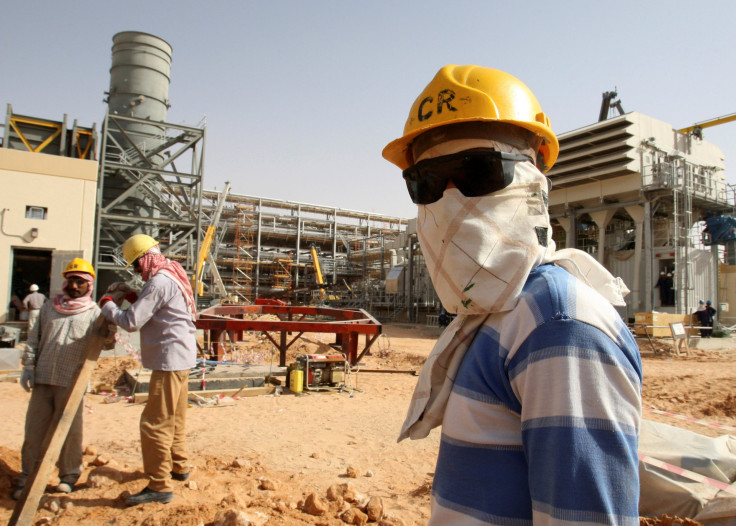Saudi Arabia News: Foreigners Leaving Country Over Low Oil Prices And High Taxes

Foreigners have begun an exodus from Saudi Arabia as the oil-rich kingdom imposed higher taxes and issued less international work visas in order to counter low energy prices and a slowing economy, Agence France-Presse reported Friday.
Saudi Arabia was estimated to host about 10.4 million expats in 2016, nearly half the nation's 20.1 million native population. An abundance of lucrative working opportunities in the energy sector, finance and manual labor among other industries and lack of income tax have attracted prospective employees from around the world including the West and South Asia. A drop in oil prices and production cuts mandated by a recent deal among members of the Organization of Petroleum Exporting Countries (OPEC), however, has led Saudia Arabia to streamline its provisions for foreigners.
"I have to admit, they will save a lot," Dominic Steck, a German worker who prepared to leave Saudi Arabia after decades of work, told AFP. He told the news outlet that his employers "sent the Westerners" back home in order to save money from expensive, foreign contracts.
Riyadh has also prepared new fees for foreign workers totaling $27 a month in July and potentially reaching over $100 a month by 2020. The move was Saudi Arabia's latest step toward achieving its "Vision 2030" plan that aims to wean the economy off of its dependence on oil. These costs could prove devastating for low-income workers from countries such as the Philippines, India and Pakistan that barely clear $2500 a month in wages. Other proposed taxes on consumer goods, higher gas prices and a general initiative to hire more Saudi workers have hit Westerners and high-income workers as well.
Saudi Arabia's cutbacks have come in response to years of global uncertainty over oil and gas prices, which the vast majority of the nation's economy has relied on. Oil prices peaked in 2008, reaching a record $147 per barrel. Five months later, they had dropped to $34 per barrel. Prices averaged around $100 in the past decade since, but have since fallen to about half that, causing mayhem for oil-dependant markets such as Saudi Arabia. In an OPEC deal reached in November, Saudi Arabia reluctantly agreed to cut its production by at least 486,000 barrels per day in a bid to raise the price of oil.
© Copyright IBTimes 2024. All rights reserved.





















